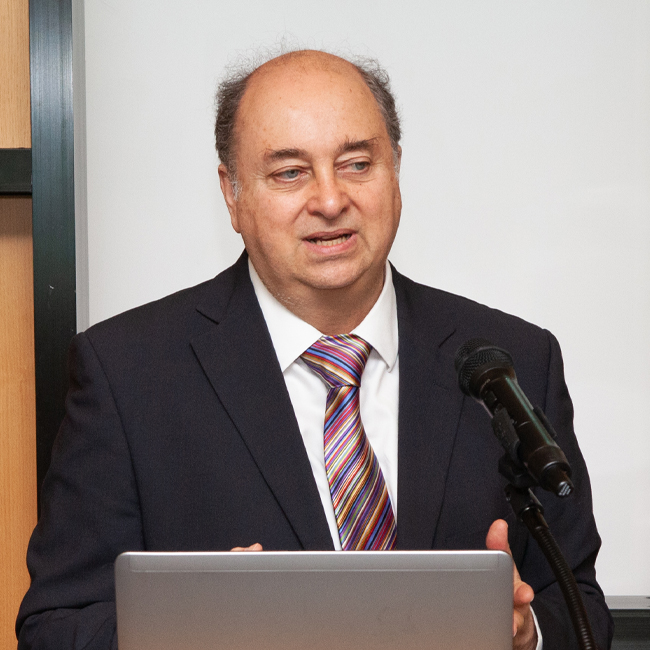
Professor David Gordon
At a time when the health of the world is under threat from COVID-19, David Gordon, Professor of Social Justice at the UK’s University of Bristol, and Director of the Bristol Poverty Institute, examined why, in one of the wealthiest cities in the world, many Hongkongers are unable to access a range of medical services.
Prof Gordon began his Cities and Governance online seminar by pointing out how the notion that inequality would diminish as economies moved, over the centuries, from a farming to an industrial footing had proved to be overly optimistic. Colonialism had also played its part, he said."The economics clearly show that many colonial societies were massively exploited by the colonisers to extract the maximum possible amount of wealth."
But poverty and deprivation had persisted even in developed countries. Work going back to the 19th Century in the United States by Henry George, and in London by Charles Booth, had shown this was caused by factors such as lack of work, low wages, bad luck and illness, with, in the world’s wealthier cities, an underlying connection to the expensive cost of housing.
Prof Gordon accepted that in Hong Kong most people can afford basic goods and services."But where you tend to find very high rates of deprivation in Hong Kong is in housing."
He noted that a startling 53 percent of the SAR’s population live in problematic housing - that is housing that is too cramped, lacks privacy, is badly lit, is too hot in summer and/or too cold in winter, or that has damp walls, ceilings or floors."That's an extremely high rate and is likely to have long-term health consequences.”
Overall, Hong Kong’s healthcare system is one of the most efficient on the planet. Even though it absorbs only around 5.4 percent of the SAR’s GDP, Hong Kong has one of the lowest neonatal mortality rates in the world and one of the longest life expectancy figures: 87 years for women and 81 for men."So how comes we have a group in Hong Kong with such bad health outcomes," Prof Gordon wondered rhetorically – before pointing to the cause: affordability.
The 2013 Poverty and Social Exclusion in Hong Kong Survey that he worked on with Lingnan University’s Prof Maggie Lau, among others, found that poor households in Hong Kong are ten times less likely to consult a doctor or have regular dental or eye check-ups than their non-poor peers.
While a recent study by the Chinese University of Hong Kong’s Faculty of Medicine and Jockey Club School of Public Health and Primary Care reported that, in the previous year, 19 percent of the city’s population who had health problems did not visit a doctor, or skipped a recommended medical test or treatment, due to cost. So, it is not Hong Kong’s adults and children with the greatest health needs who are receiving medical care, it’s the ones with sufficient money.
Prof Gordon concluded his presentation with Charles Darwin’s admonishment from 1845: ‘If the misery of our poor be caused not by the laws of nature, but by our institutions, great is our sin.’


